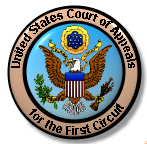 A federal appeals court in Boston, Massachusetts issued a decision on Monday, reversing a federal district court’s earlier decision in a False Claims Act case filed by a whistleblower against Brigham and Women’s Hospital, Massachusetts General Hospital, and two doctors heading the process of researching and preparing an application to the National Institutes of Health for federal funds to research Alzheimer’s disease.
A federal appeals court in Boston, Massachusetts issued a decision on Monday, reversing a federal district court’s earlier decision in a False Claims Act case filed by a whistleblower against Brigham and Women’s Hospital, Massachusetts General Hospital, and two doctors heading the process of researching and preparing an application to the National Institutes of Health for federal funds to research Alzheimer’s disease.
Dr. Jones filed the lawsuit under the qui tam provisions of the False Claims Act which allow private citizens to bring an action on behalf of the United States for violations of the False Claims Act. Jones alleged that the hospital made false statements in the grant application in violation of the False Claims Act. In November of 2010, the federal district court below ruled against Jones and in favor of the hospital, holding that no genuine issue of material fact existed as to whether false statements in the application both existed and were known of. Jones then appealed to the United States Court of Appeals for the First Circuit, finding that the district court did not properly consider certain expert testimony and that genuine issues of material fact existed as to how data was collected and obtained from studies, and if such data was in fact falsified as contended by Jones, whether a reasonable jury would find it material to the alleged false statements and whether the defendants knowingly used the false data in violation of the False Claims Act.
The case ultimately highlights interesting questions concerning what courts may expect from qui tam relators, more commonly referred to as whistleblowers, when seeking to prove False Claims Act liability in cases where fraud infiltrates the research and preparation of information and data submitted in an application for highly sought after federal funds for major medical research projects.
 Whistleblower Attorneys Blog
Whistleblower Attorneys Blog

